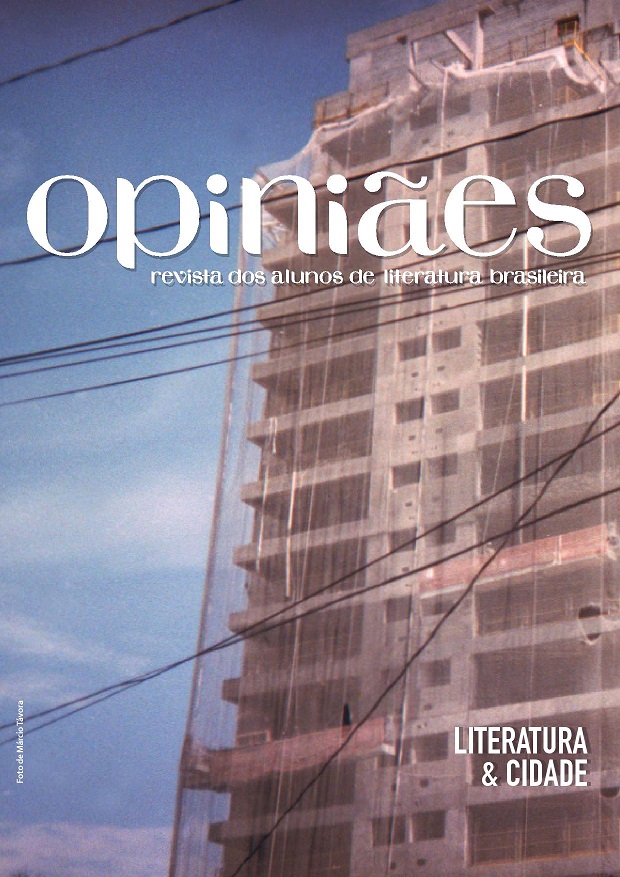The Rhetoric of Nostalgia in a Short-Story by Rubens Fonseca
DOI:
https://doi.org/10.11606/issn.2525-8133.opiniaes.2016.124619Keywords:
Rubem Fonseca, stories, city, flâneur.Abstract
Literary criticism points out that the fiction by Rubem Fonseca emphasizes the urban space and represents through an aggressive and outspoken language the social transformations that have taken place in the formation of the modern city of Rio de Janeiro. In the short story, “A arte de andar nas ruas do Rio de Janeiro”, from the book Romance Negro e outras histórias, we follow the adventures of the character Augusto in his flanêrie in the center of town. We observe the contradictions that permeate the entire narrative arising from a nostalgic look split between the old and the modern city of Rio de Janeiro. Identifying himself with the figure of the mouse, the character, a kind of contemporary flâneur, gets involved with marginalized figures that he finds in his wanderings. Through the character’s resigned look, the story does not let aside the representation of the rawness of life in the metropolis, where the Islanding of the subject and social marginalization generated by modernization become an invitation for reflection.Downloads
Download data is not yet available.
Downloads
Published
2016-12-21
Issue
Section
Dossiê
License
A revista Opiniães não exerce cobrança pelas contribuições recebidas, garantindo o compartilhamento universal de suas publicações. Os autores mantêm os direitos autorais sobre os textos originais e inéditos que disponibilizarem e concedem à revista o direito de primeira publicação, com o trabalho simultaneamente licenciado sob a Licença Creative Commons Attribution que permite o compartilhamento do trabalho com reconhecimento da autoria e publicação inicial nesta revista.
How to Cite
Mendonça, E. da S. (2016). The Rhetoric of Nostalgia in a Short-Story by Rubens Fonseca. Opiniães, 5(9), 81-88. https://doi.org/10.11606/issn.2525-8133.opiniaes.2016.124619



